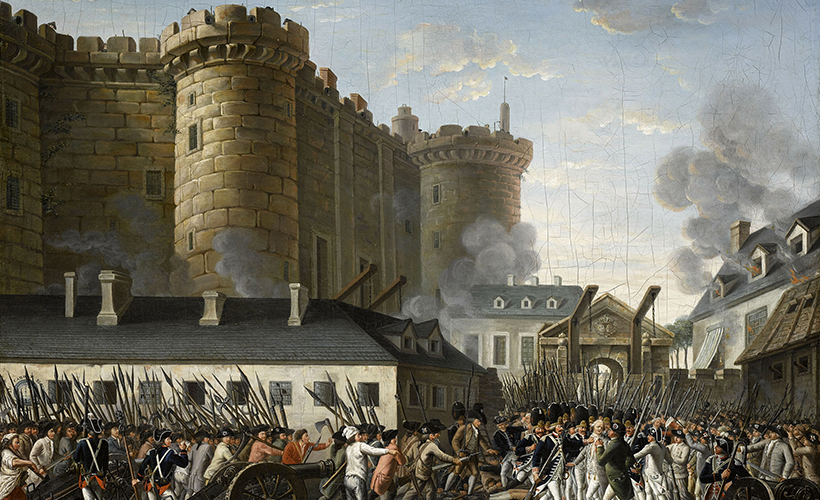Was Edmund Burke’s condemnation of the French Revolution justified? Be sure to check out Issues & Controversies in History’s complete and unbiased coverage of this issue. Learn more about the issue and check out a sample of the pro/con arguments on both sides below.
Try Issues & Controversies in History today!
THE ISSUE
In 1789, the French Revolution erupted in Paris. Challenging the authority of the monarchy, the aristocracy, and the church, the revolutionaries formed a new government that proclaimed liberty and equality for all. The revolutionaries became increasingly radical, and in 1793, they executed the king and queen and instituted a “Reign of Terror” in which thousands of people were killed. Across the English Channel in London in 1790, Edmund Burke, an Irish-born politician and philosopher, published Reflections on the Revolution in France, a treatise that harshly criticized the violence and chaos unfolding in France. Burke’s treatise, which would become one of the most influential works in British political history, also seemed to predict the regicide and Reign of Terror to come. Was Edmund Burke right to condemn the French Revolution?
Arguments That Edmund Burke Was Right to Condemn the French Revolution:
Arguments That Edmund Burke Was Wrong to Condemn the French Revolution:
Edmund Burke was a brilliant philosopher and political thinker who, as a member of Parliament in the 1770s, had sympathized with colonists’ grievances for liberty and freedom during the American Revolution. When the French Revolution erupted, however, Burke could see that this was something different. As an insightful observer of global politics, he denounced the spreading uprising and believed it would soon descend into extreme violence and mayhem. Events ultimately proved Burke right, showing that his analysis in Reflections on the Revolution in France and condemnation of the upheavals was right.
Edmund Burke may have been a brilliant and perceptive writer who understood the grievances of colonists during the American Revolution, but he broadly misunderstood the aims of the French Revolution. As a fairly conservative politician who identified with aristocratic rule, he was biased toward the new revolutionary government in Paris and disturbed by the idea that “commoners” and “ordinary” people were taking part in the uprising and claiming the right to choose their own leaders. At the time he wrote Reflections on the Revolution in France, little violence had taken place, and he was wrong to condemn the French Revolution.
Issues & Controversies in History links this pro/con article to rich related resources that enhance the debate. Students and researchers can delve into primary sources that provide context, a topic-specific timeline, a bibliography, and a thought-provoking “What if…” section that asks what might have happened had the French Revolution sparked a similar uprising in England.
What Is Issues & Controversies in History?
Issues & Controversies in History places students at the center of the great debates and conflicts in U.S. and world history, exploring the issues as the key players saw them or, in some cases, as historians have interpreted them. This comprehensive reference database delivers dynamic, concise, and balanced coverage of a broad range of topics, from slavery, empire, and revolution to race, gender, economy, and disease, all over the globe. By building a deeper understanding of how historical events and conflicts have influenced U.S. and world history over the past 5,000 years, Issues & Controversies in History is a powerful tool for helping researchers analyze primary sources, answer document-based questions, and prepare for history debates and research projects.
Click here to take a free trial of Issues & Controversies in History.
See also:



